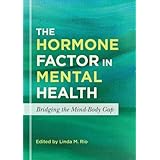Stress and Impact on relationships: Physical, Mental, Emotional and Relationship Health Responses to Coronavirus
From Linda M. Rio, MA, MFT and PWN contributor – Pituitary World News recognizes the global impact on the current Coronavirus situation. And this is a unique and unprecedented challenge not only for the medical community to address but local, state, national, and international governments, companies, organizations, families, and individuals as well. In a very short time, we have all had to learn to adapt and cope. We also recognize that some, not all, pituitary and other neuroendocrine disorders pose additional medical risks putting some patients into the higher-risk categories. The very nature of some endocrine disorders involves an extra load onto the body’s stress response system. So, we want to continue to provide as much accurate, reliable information as possible as well as to help you cope and thrive during unusual times. This article will focus on optimal and recommended ways to respond to the current coronavirus stress.
STRESS: Firstly, no one is immune to the impact this microscopic virus is having. For some, it may feel like a minor aggravation of not being able to buy typical groceries or go out to your favorite nightspot. Since some pituitary disorders are already related to increased anxiety, depression, fluctuating moods, and other mental health symptoms, the current global anxiety being experienced, and some may say promoted (more on that later), can push the body’s stress response system into overload. In general, many pituitary patients are cautioned to monitor and make special efforts to minimize their stress. Of course, some stress is just a part of daily life. Then, there are unusual times, such as what we are all experiencing. But some measures that can be taken to limit the impact.
Unfortunately, we have become experts in social isolation, but that is not being advised here. Social distancing is different from social isolation, the former being a healthy and necessary response, and the latter over time quite unhealthy. Humans are social, “herd” animals. We typically need one another. We need to connect, touch, talk to one another. Luckily in today’s world, there are plenty of ways to connect and maintain, even increase our relationships with one another…just in different ways right now. Technology provides many ways to stay in touch, whether through phone calls, text, social media, email to listening to podcasts, YouTube, chat rooms, and much means of communicating! Of course, any of these can be overdone and overused, but right now might be excellent choices.
IMPACT ON RELATIONSHIPS: Those with pituitary disorders are a part of communities, workplaces, and, most importantly, families. The challenging times we are facing require many to shutter in homes to help reduce the spread of the virus. This means some will actually be “together”, in closer proximity than usual. And even if humans need relationships, we can also get on each other’s nerves if there is not enough physical space! Such a fine balance humans need! When the delicate internal balance of an individual’s hormonal system is disrupted by something as small as a growth on a pea-sized gland in the head, this often causes external disruptions in a person’s ability to manage their emotions, and therefore behaviors that impact their relationships. Emotional or angry outbursts, withdrawal, and isolation, intense anxiousness can affect family life, especially if family members, or even the pituitary patients themselves, don’t even know this is related to the medical illness. So, if we are now all supposed to stay inside or shutter away from large crowds, what impact might that have overtime on couples and families?
So, we offer here a few ideas and suggestions to help manage the next days, weeks, or longer. Since we are all part of a broader community and need to do our parts to navigate this challenge as best as possible, these are ideas anyone can use. Because those with a particular medical challenge, such as pituitary/neuroendocrine disorder, need to be more alert to their health, it is particularly important to do as many things possible to stay healthy.
TIPS AND TOOLS FOR COUNTERACTING STRESS AND PROMOTING WELL-BEING
Self-Awareness
- Practice a daily self-check for signs of stress in the body that include: feeling tension or tightness in the muscles, clenched hands, tight jaw, muscles around the eyes feeling tight or strained, stomach upset/nausea, diarrhea/bowel changes.
- Listen to how you are talking/texting/communicating with others. Is there an increase in the use of angry, scary, anxious words? Is there a change in the tone of voice i.e., raised or more intense?
- Monitor personal use of television, social media, and be willing to limit it when you observe signs of stress (listed above) as a result.
- Ask yourself each day if you are committed to physical, medical, emotional, spiritual self-care?
- Ask yourself if you have been honest with your physician(s) about your mental/emotional needs and the impact the current situation may be having on you? Doctors may be able to refer you to excellent medical and other resources.
- See counseling/therapy to help manage stress and other mental health concerns. In today’s world, more and more counseling will be provided via Telehealth to accommodate the current issues as well as beyond.
Relationships
- Plan family meetings at least weekly to allow for all to check-in with one another. These meetings can be done virtually using technology but especially important for those living under one roof and shuttered together. Meetings should have ground rules and allow for safe and open communication.
- Regular check-ins with significant others that ask, “how are we doing with all of this?”
- Play! Start or go back to doing fun things like old fashioned board game night! Parents can get on the floor with their children and actually “play”…remember the freedom that play affords (if you had those experiences). Make an indoor tent and let the kids “camp out.”
- Go on a picnic! Even if just in your backyard or on an apartment balcony! Who knows, this could replace the expensive dining-out experience!
- Watch comedy shows, read/share jokes! Humor is medicine for the soul and even better if shared!
- Connect through social media that encourages positivity and creative ways to adapt. Some patient support chat rooms and sites are highly supportive; others may allow negative comments that are not healthy, especially with the current situation.
Physical
- Exercise, according to what your doctor advises. Research shows mental, along with the physical benefits of exercise. It is not necessary nor currently recommended to exercise at a gym. Still, there are plenty of other ways to move: stretch, yoga, watch YouTube exercise videos, and workout at home, walk, ride a bike, swim etc.outside while keeping safe social distance.
- Be in Nature! Research also shows significant healing and de-stressing benefits of just looking at a tree, flower, etc. But it is even better to touch, “be” in the presence of nature. Many communities and parks are currently waiving park use fees to encourage people to care for themselves by being outside where we can all feel the benefits!
Additional Measures
- Music, for some, is truly transformative and the perfect antidote to stress. Music can also transpose us into another place far away!
- Reading is also a lovely and positive escape for many! For children who may not be attending school, this might be a great time to introduce them to the joys that reading can offer, especially since we know that limits to the amount of screen time are essential for developing brains!
- Art, either viewing and enjoying all forms of art or doing art, is another thing to help realign the body’s response to stress.
- Community volunteering/contributing even in small ways not only helps those who are recipients of your work, but it promotes an overall good feeling inside you as well.
- General kindness and cooperation, especially during such uncertain and new times, helps promote a sense of goodwill for us all.
- There are many, many other ways to combat the stress of coronavirus, so be willing to notice and possibly share with others what works for you! Let us all be part of the solution and support personal and global healing so we can successfully get through this together!
Linda M. Rio, M.A., LMFT (805) 619-0950 www.Lindamrio.com
 available through Amazon.com and other major booksellers
available through Amazon.com and other major booksellers© 2020 – 2024, J D Faccinetti. All rights reserved.
